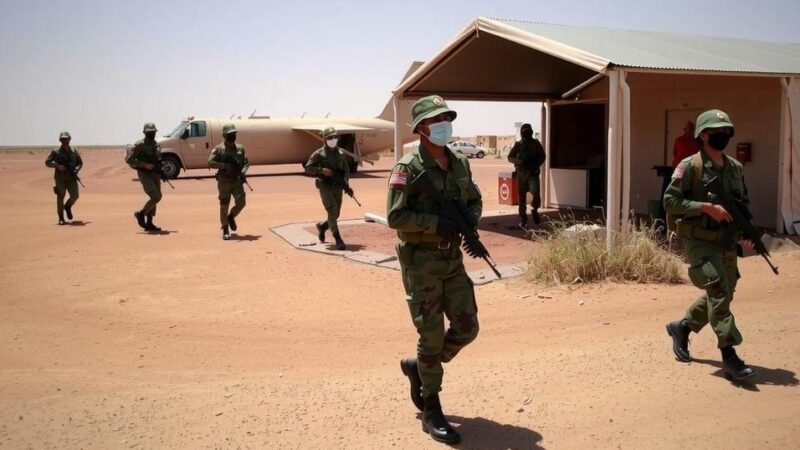Afghanistan’s participation in COP29 has emphasized the country’s urgent need to be included in global climate discussions. Matiul Haq Khalis stated that it is essential for Afghanistan to raise its voice regarding climate issues facing the nation. The government is advocating for its involvement to combat the severe impacts of climate change, illustrating a commitment to international cooperation despite ongoing political isolation.
During a recent press conference, Matiul Haq Khalis, director general of Afghanistan’s National Environmental Protection Agency, emphasized the necessity for Afghanistan’s participation in upcoming global climate summits. This statement follows Afghanistan’s attendance at COP29 in Baku, marking the first time representatives from the Taliban regime were present at such discussions since taking control in August 2021. Although the Afghan delegation was treated as “guests” rather than formal negotiation participants, Khalis described their involvement as a significant achievement for raising awareness surrounding Afghanistan’s unique challenges regarding climate change.
The Afghan government has highlighted that despite being among the nations least responsible for greenhouse gas emissions, Afghanistan faces dire consequences from global warming. Khalis noted that during the Baku talks, the Afghan delegation engaged with representatives from various countries and organizations, including Russia, Qatar, Azerbaijan, and Bangladesh. The meetings served to voice the pressing needs and issues faced by the Afghan populace on the international stage.
Afghanistan is classified as one of the most vulnerable countries to climate change effects, suffering from extreme weather phenomena such as prolonged droughts and flooding, alongside a decline in agricultural productivity. The Taliban administration contends that their political isolation must not obstruct their involvement in essential climate discussions. International calls, including from the United Nations, have urged for Afghanistan to be integrated into climate dialogues and receive support for building resilience against environmental impacts. Moreover, developed nations have pledged $100 billion annually from now until 2025 to assist developing countries in addressing climate change and transitioning away from fossil fuels.
The issue of climate vulnerability in Afghanistan has risen to prominence, especially in light of the Taliban’s recent accession to power and the country’s historical isolation in international discussions. Afghanistan has experienced severe climatic events despite being a minor contributor to global emissions. This backdrop renders the need for a platform where the Afghan government can communicate its challenges and solicit international aid particularly urgent. The involvement at COP29 could be a pivotal step toward reintegration into global frameworks aimed at combating climate change and securing financial and infrastructural assistance from developed nations.
In conclusion, Afghanistan’s participation in international climate discussions is imperative given its significant vulnerability to climate change despite minimal contributions to global emissions. The recent attendance at COP29 is a pivotal step for Afghanistan to articulate its environmental concerns and seek necessary support. The international community’s engagement, particularly through climate finance, is vital to bolster Afghanistan’s resilience and address the pressing issues brought upon by climate change. Future participation in climate talks could assist in fostering deeper international connections and support for the Afghan people.
Original Source: www.france24.com







